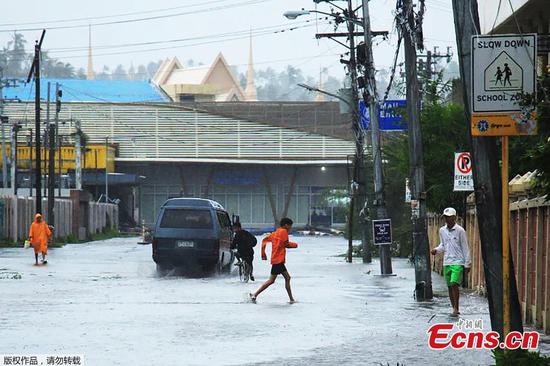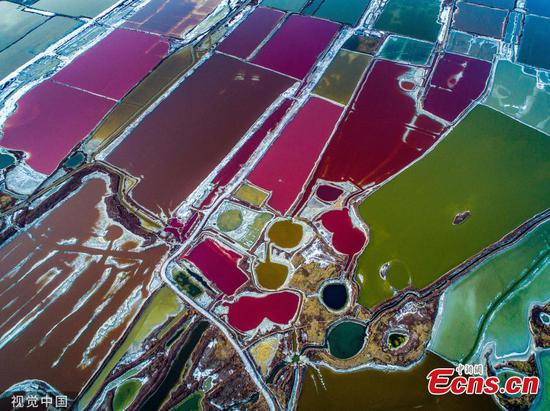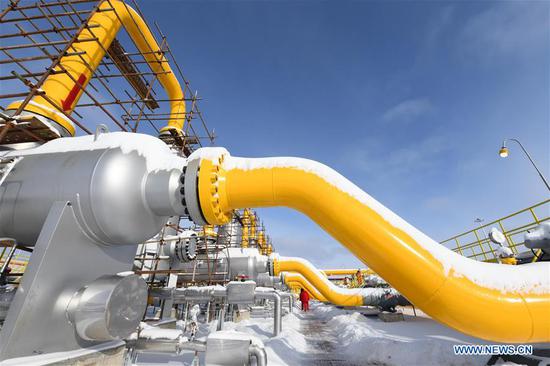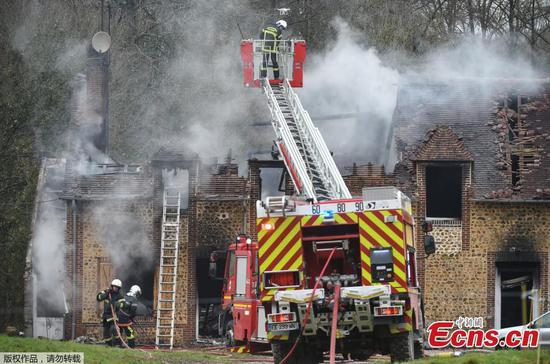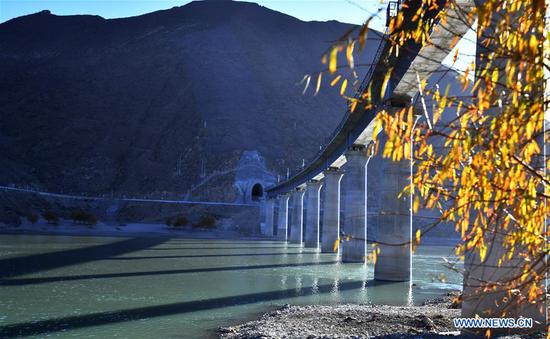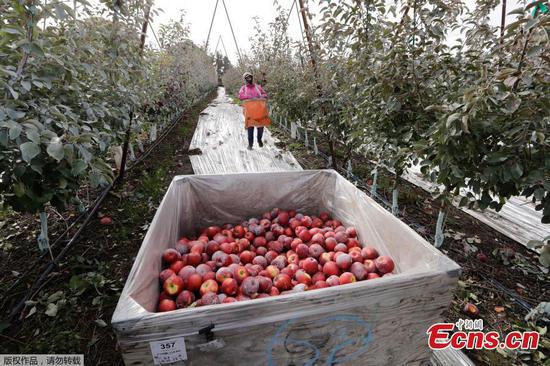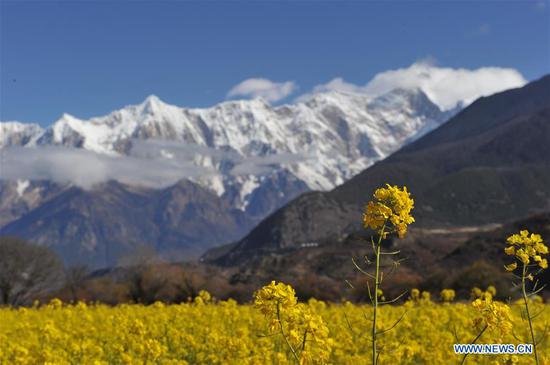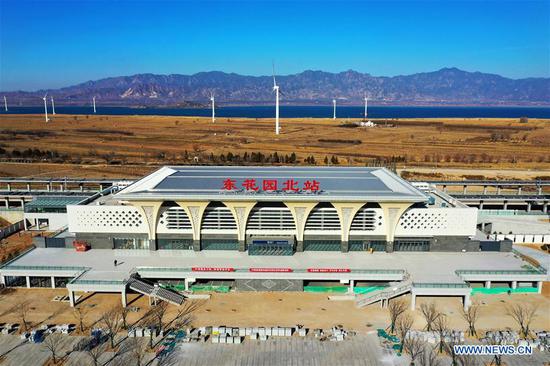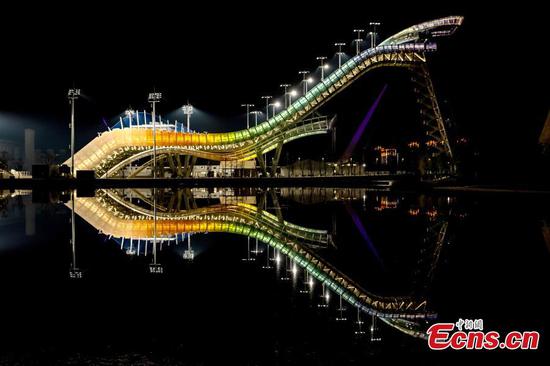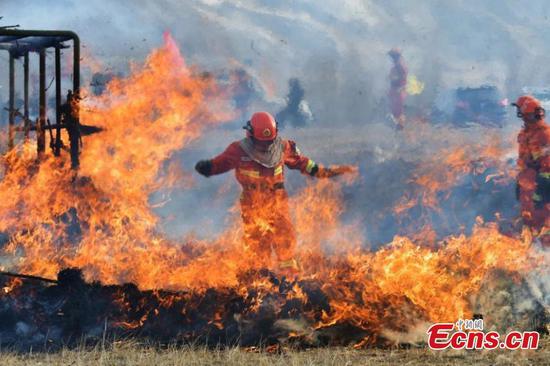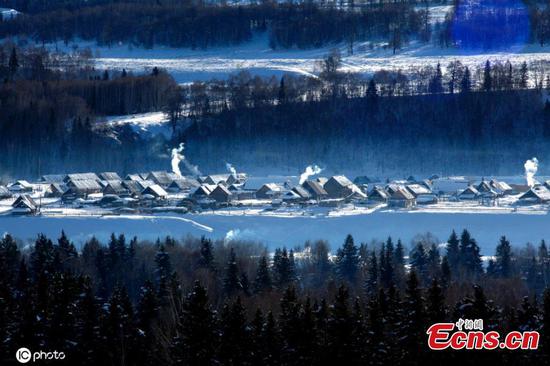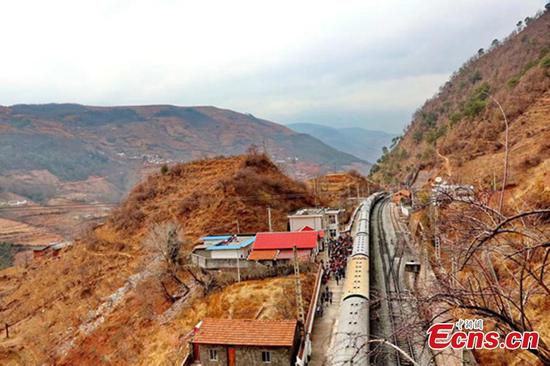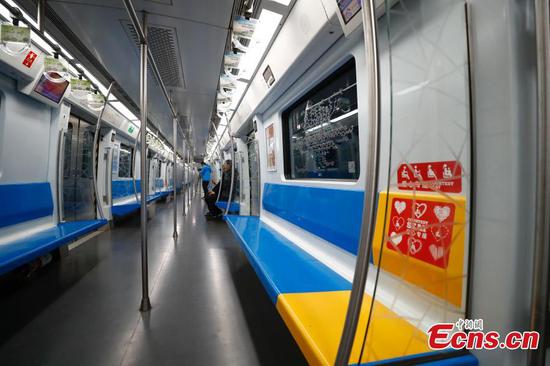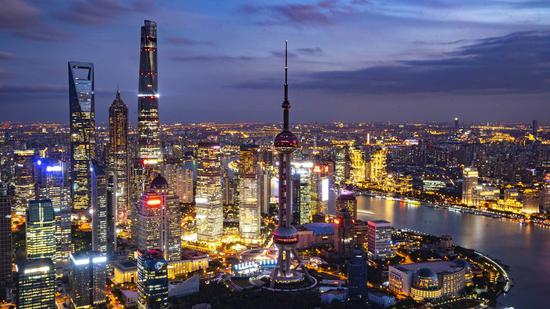
Photo taken on Nov. 1, 2018 shows a night view of Shanghai, east China. (Xinhua/Cai Yang)
The Yangtze River Delta, one of China's fastest-growing and richest regions, is set to embrace more coordinated opening up efforts as a fertile ground of foreign investment and trade.
A new master plan unveiled Sunday on the integrated development of region put forward heavyweight measures to elevate the region's opening up across sectors including manufacturing, finance and services.
The 358,000-square km expanse, about the same size as Germany, encompasses the provinces of Jiangsu, Zhejiang, Anhui, and Shanghai Municipality. It contributes about one-fourth of the country's GDP and one-third of foreign trade and investment.
By outlining the development goals to be achieved by 2025 and offering visions into 2035, the new plan sends a fresh signal of China's determination to open its door wider.
According to the plan, lowering the threshold for market access in sectors ranging from automobiles to new energy will enable more Global Fortune 500 companies to team up with local players in forging global chains of innovation, industry and supply.
The region's automobile industry output accounts for over 26 percent of the country's total, while its shipbuilding and telecommunication account for 30 percent and 29.9 percent, respectively.
Foreign investment will also find it increasingly easier to expand its footprint within the region's banking sector as the plan promises wider financial opening up. Foreign institutions will be encouraged to issue yuan-denominated bonds at the Shanghai bourse, while the bond market connectivity will be promoted under the Shanghai-Hong Kong Stock Connect scheme.
Efforts should be made to develop and facilitate the service trade, while transformation and upgrading of the service outsourcing industry will pick up steam to create a global high ground of related businesses.
In terms of agriculture, the master plan points to more imports of farm produce that are in short supply.
As one of China's most economically active, open and innovative regions, the Yangtze River Delta boasts strategic significance in the country's modernization and further opening-up, which makes its regional integration crucial for leading the country's high-quality development and developing a modernized economy.
China's economic hub Shanghai will assume greater role. The master plan highlighted accelerating the building of the new section of the Shanghai pilot free trade zone. The section will work on introducing liberalization of investment, trade, funding, transportation and employment, and align its opening up with the world's most competitive free trade parks.
The master plan calls for coordinated efforts in ensuring the China International Import Expo (CIIE) held in Shanghai a success. The expo will grow in scale and quality and feature more innovation as a world-class expo.
The second CIIE concluded on Nov. 10, with 71.13 billion U.S. dollars worth of tentative deals reached for one-year purchases of goods and services. More than 230 companies from all over the world have signed up for the third CIIE, with their combined pre-ordered exhibition area exceeding 84,000 square meters.
"The Yangtze River Delta has accumulated significant advantages," said Bai Ming, an expert with a research institute affiliated to China's Ministry of Commerce. "We should not be complacent with the traditional advantages, but make good use of them to explore higher level of opening up, and to set an example for the whole country."









